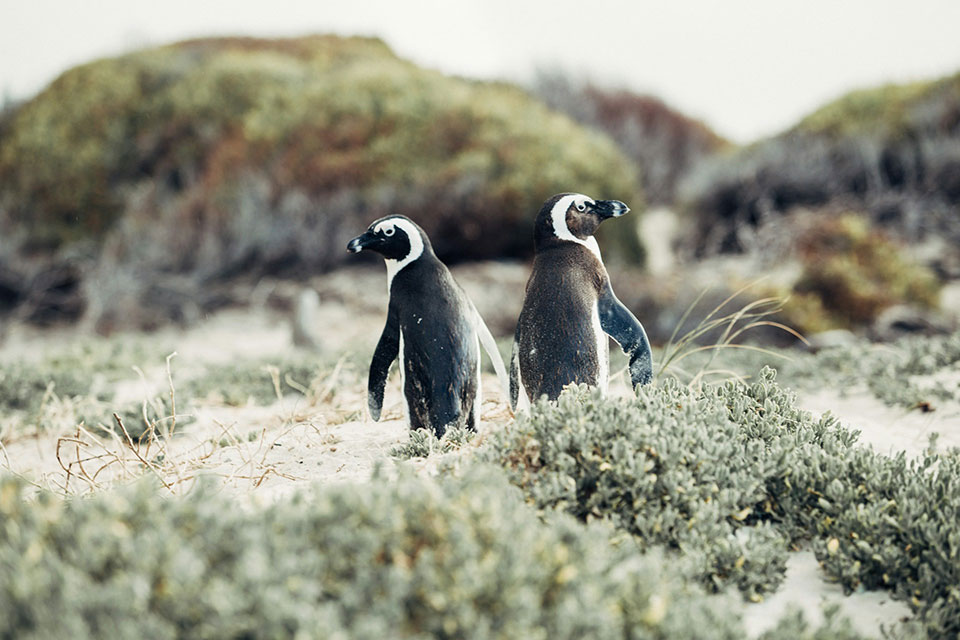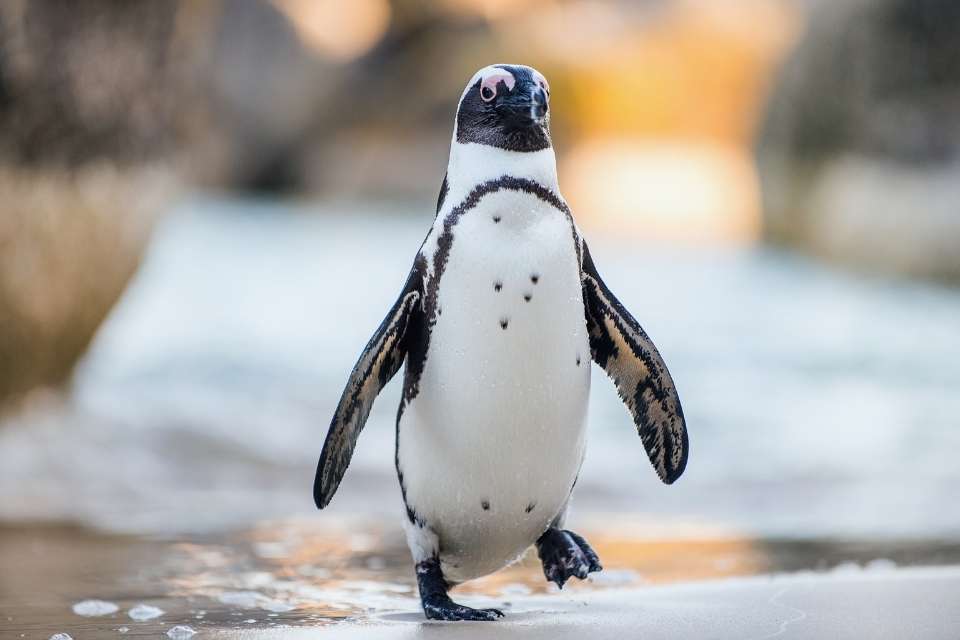These remarkable creatures have been facing a steady decline in their population, primarily due to the effects of industrial fishing around the Cape. The question begs to be asked: Are African penguins endangered?
Yes, African penguins are endangered and we need to address the critical situation faced by African penguins, as they are on the brink of extinction. In the past 30 years alone, their numbers have plummeted by over 50 percent, leading to their classification as an endangered species by BirdLife International. This decline is alarming, with their population dropping by around 90 birds per week.
Immediate action is crucial to prevent further declines and protect the future of African penguins.
Key Takeaways:
- African penguins are currently classified as an endangered species.
- Their population has declined by over 50 percent in the past 30 years.
- Industrial fishing and other factors have contributed to this decline.
- Conservation efforts are urgently needed to safeguard these remarkable creatures.
Why Are African Penguins Endangered
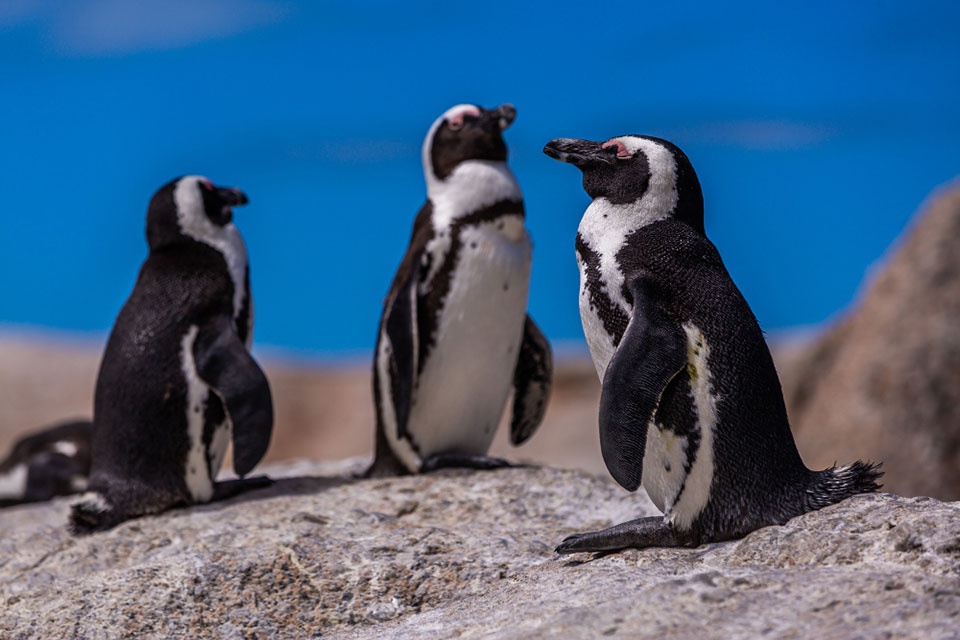
The population of African penguins has been experiencing a rapid decline, primarily due to habitat loss, climate change impacts, and ocean pollution.
These factors have had a devastating effect on the penguin population, pushing them closer to the brink of extinction. To understand the severity of the situation, let’s take a closer look at each of these contributing factors.
Habitat Loss:
Industrial fishing and the subsequent shifts in prey populations have significantly impacted the habitat of African penguins. The destruction of their natural feeding grounds has led to a decrease in their food supply, making it increasingly difficult for them to sustain their population.
Additionally, human activities encroach on their nesting sites, further exacerbating their habitat loss.
Climate Change Impacts:
The effects of climate change, such as rising ocean temperatures, have also taken a toll on African penguins. These birds are adapted to specific temperature ranges, and any deviations from their optimum conditions can result in reduced reproductive success and overall population decline.
The warming of the oceans disrupts the penguins’ food chain, causing prey species to migrate or die off, further reducing the penguins’ food availability.
Ocean Pollution:
Another significant threat to African penguins is ocean pollution. Pollution from oil spills, plastic waste, and chemical runoff contaminates their habitat and can have dire consequences on their health and survival.
Penguins often become entangled in plastic debris, which leads to injuries and difficulties in foraging for food.
The accumulation of toxins in their prey can also have long-term impacts on their reproductive success and overall population viability.
The combined impact of habitat loss, climate change, and ocean pollution has led to a severe decline in African penguin populations. Urgent conservation efforts are needed to address these threats and protect these unique and endangered creatures from extinction.
Only through collective action and a commitment to environmental stewardship can we ensure the survival of African penguins for future generations to come.
Conservation Efforts for African Penguins
When it comes to protecting African penguins from further population decline, conservation efforts are playing a vital role. Organizations such as BirdLife International and Marine and Coastal Management are actively working towards the preservation of this endangered species.
One of the key strategies is the closure of fishing areas around important penguin breeding islands.
This measure has shown promising results in benefiting the penguins by ensuring the availability of prey and reducing competition for food.
By creating protected zones, we can provide a safe environment for African penguins to thrive and increase their population numbers.
In addition to area closures, raising awareness about the threats faced by African penguins is crucial. Educational campaigns and community engagement programs aim to inform the public about the importance of wildlife conservation and the role they can play in protecting these fascinating creatures.
By minimizing threats such as egg harvesting, oil spills, and food scarcity, we can give African penguins a fighting chance for survival.
Show your support by adopting a penguin: Click here now to adopt a penguin.
Implementing Measures for Long-Term Conservation
To ensure the long-term conservation of African penguins, it is essential to implement measures that address the various challenges they face. This includes monitoring and managing fishing practices to prevent overfishing and protect their food sources.
By working closely with fishing industries, we can find sustainable solutions that benefit both the penguins and the livelihoods of local communities.
Furthermore, efforts must be made to mitigate the impacts of climate change on penguin habitats. This involves studying the effects of warming ocean temperatures and taking proactive steps to protect breeding grounds from erosion caused by rising sea levels.
By combining these conservation efforts with ongoing research and collaboration among scientists, conservationists, and local communities, we can strive towards a future where African penguins thrive once again.
The Importance of African Penguins in the Ecosystem
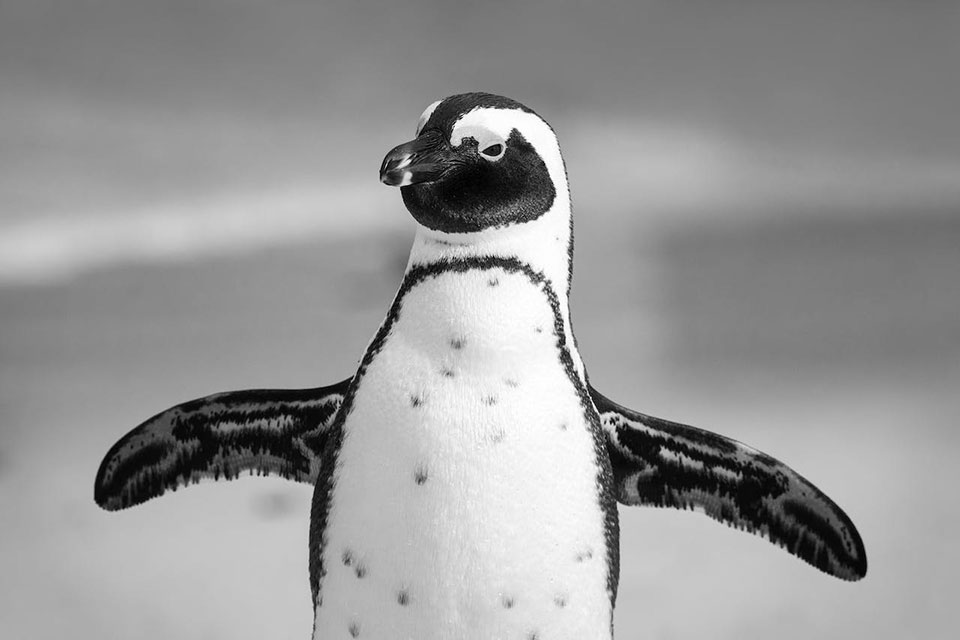
African penguins play a crucial role in maintaining the balance of the ecosystem as both predators and a vital food source. These charismatic birds prey on small fish, such as anchovies and sardines, helping to regulate their populations.
By feeding on these abundant fish species, African penguins contribute to the overall health and stability of the marine environment.
Furthermore, African penguins serve as an essential food source for predators like sharks and seals. Their presence in the ecosystem ensures a reliable food supply for these larger predators, supporting their populations and maintaining the ecological balance.
Quotes:
“African penguins are keystone species that have a profound impact on the marine environment. As predators, they help control the abundance of small fish, preventing overpopulation. Additionally, their role as prey provides sustenance for larger predators, contributing to a healthy food web.” – Marine Biologist, Dr. Lisa Thompson
The continued conservation of African penguins is vital not only for their own survival but also for the overall health and sustainability of the marine ecosystem.
Protecting and preserving the habitats of African penguins is necessary to maintain the delicate balance and ensure the long-term well-being of the diverse species that rely on them.
Current Population Status of African Penguins
We need to address the alarming decline in the population of African penguins, an endangered species that plays a crucial role in our ecosystem. Currently, there are fewer than 11,000 breeding pairs remaining, a significant decrease from the millions that existed in the early 20th century.
Without immediate action, scientists predict that the species may go extinct in the wild by 2035.
The population data paints a grim picture of the future of African penguins. Over the past 30 years, their numbers have plummeted by over 50 percent, and the decline shows no sign of stopping.
With an average decline of around 90 birds per week, this endangered species urgently requires our attention and conservation efforts to prevent further declines.
The risk of extinction is looming over the African penguin population, emphasizing the need for immediate conservation measures. The loss of these magnificent creatures would be a devastating blow to our marine ecosystems.
We must take action to protect their habitats, address the threats they face, and ensure their survival for future generations to appreciate.
Threats to African Penguins
African penguins face a number of threats that pose a significant risk to their survival. These threats include:
- Overfishing: The Indian Ocean, where African penguins primarily reside, has experienced extensive overfishing. This has led to a decline in fish populations, reducing the penguins’ food sources and contributing to food scarcity.
- Environmental changes: Climate change and other environmental factors have caused shifts in ocean currents and temperatures, impacting the availability of prey for African penguins. These changes disrupt the delicate balance of the marine ecosystem, affecting the penguins’ ability to find food.
- Disease: African penguins are susceptible to various diseases, including avian malaria and avian influenza. Outbreaks of these diseases can devastate penguin populations, further endangering this already vulnerable species.
- Pollution: Pollution, such as oil spills and marine debris, poses a serious threat to African penguins. Oil spills can contaminate their feathers, impairing their insulation and buoyancy. Plastic waste also poses a risk as penguins can ingest it, leading to internal injuries and potential fatalities.
Addressing these threats requires collaborative efforts between government agencies, conservation organizations, and the public.
Implementing measures to reduce overfishing, combating climate change, and raising awareness about the impacts of pollution are all crucial steps in protecting African penguins and ensuring their survival in the wild.
The Role of African Penguins in South Africa’s Tourism
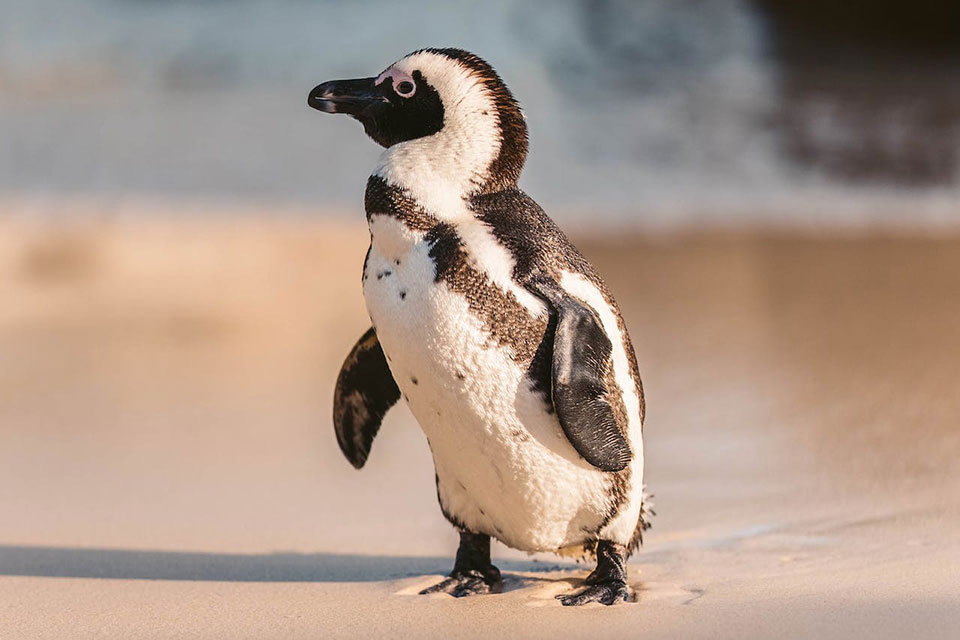
African penguins are not just important for their ecological role but also for South Africa’s tourism industry. One of the top tourist attractions is Boulders Beach located in Simon’s Town, where visitors can experience the magic of observing these charming penguins in their natural habitat.
“Boulders Beach is a must-visit destination for nature enthusiasts and animal lovers alike,” says Sarah Johnson, a local tour guide.
“Seeing these adorable penguins waddle along the beach and swim in the crystal-clear waters is a truly unforgettable experience. It’s incredible to witness the harmony between humans and wildlife in this ecotourism hotspot.”
By promoting ecotourism, the presence of African penguins at Boulders Beach supports the local economy and creates employment opportunities for the community.
The revenue generated from tourism helps fund conservation efforts and contributes to the preservation of penguin habitats in the area.
Additionally, the availability of educational programs and guided tours at Boulders Beach raises awareness about the importance of penguin conservation, inspiring visitors to take action and support wildlife protection initiatives.
Conclusion
Our journey into the world of African penguins and their conservation has shed light on the urgent need for wildlife conservation efforts. These endangered species are facing multiple threats, and it is up to us to ensure their survival.
By coming together and joining forces, we can make a difference in protecting African penguins and preserving biodiversity. Collaboration between conservation organizations, government agencies, and the public is essential.
Together, we can work towards a future where these fascinating creatures continue to thrive in their natural habitats.
Let us not wait for the situation to worsen. It is our responsibility to act now and take the necessary steps to safeguard African penguins.
Through our collective efforts, we can ensure that these incredible animals are not lost forever, and future generations have the opportunity to appreciate and enjoy their presence.
FAQ
Are African penguins endangered?
Yes, African penguins are considered an endangered species. The population has declined by more than 50 percent in the past 30 years, leading to a change in their conservation status by BirdLife International.
What are the main factors contributing to the decline of African penguins?
The decline of African penguins can be attributed to habitat loss from industrial fishing, shifts in prey populations, climate change impacts, and ocean pollution.
What conservation efforts are in place to protect African penguins?
Conservation organizations such as BirdLife International and Marine and Coastal Management are actively working to protect African penguins.
Efforts include closing fishing areas around key penguin breeding islands, raising awareness, and implementing measures to minimize threats.
What is the role of African penguins in the ecosystem?
African penguins play a vital role as both predators and a food source. They help regulate small fish populations by preying on species like anchovies and sardines. They also serve as a food source for predators like sharks and seals, contributing to the balance of the marine ecosystem.
What is the current population status of African penguins?
The current population of African penguins is estimated to be fewer than 11,000 breeding pairs, a significant decline from several million pairs in the early 20th century. If current trends continue, the species may go extinct in the wild by 2035.
What are the main threats to the survival of African penguins?
African penguins face threats such as overfishing, environmental changes, disease, storms, flooding, and pollution, which impact their population and survival.
What is the role of African penguins in South Africa’s tourism industry?
African penguins are a popular attraction at Boulders Beach in Simon’s Town, contributing to ecotourism and supporting the local economy. They also raise awareness about penguin conservation and have economic benefits for the region.
Why is wildlife conservation important for endangered species like African penguins?
Wildlife conservation is crucial for the preservation of biodiversity and the maintenance of ecological balance.
Efforts to protect and conserve African penguins are essential to ensure their survival and future generations’ appreciation and enjoyment of these fascinating creatures.

